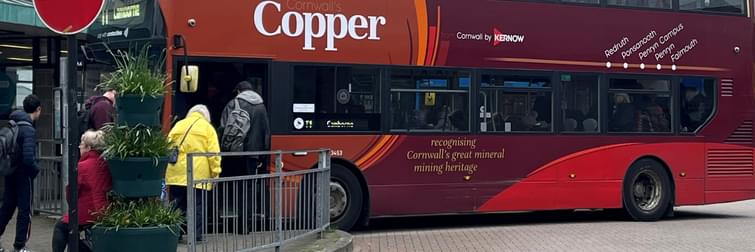
blog: Catch the Bus Month - The Role of a Bus Driver
Wednesday 25th September 2024
As part of our Catch the Bus Month to travel 2,024 kilometres by bus in September, I’ve travelled a few times by bus this month. I’ve been really pleased with my journeys. The buses were clean and comfortable, on time, and reliable, not to mention cheap, but I’ve come away feeling a bit deflated and uninspired by my journey. Why was this I hear you ask? The reason was the drivers.
I received no interaction, they seemed unapproachable, unhelpful, and in some cases, were downright obstructive and rude. Aside from the one case, they didn’t really do anything wrong from an operational standpoint, they just didn’t do it right either. It got me questioning whether my expectations are too high, and what really is the role of a bus driver in these post-pandemic times – is it simply to drive the bus and get you from A to B safely and in comfort, or should we expect more from them?
My dad is a retired bus driver and I always saw him being pleasant, helpful, and kind to passengers. Being part of the community and interacting with people were key factors which kept him in the job for almost 40 years. I applied the same traits when I drove buses, but if I’m being honest, I struggled to keep to time as a result. This was before the level of congestion and number of erratic car drivers, that we experience now. That said, buses are easier to drive these days and the onboarding process is quicker and requires less driver intervention now with fewer cash payments, change-giving and the need to navigate the ticket machine.

Buses are at the heart of our community, and as such bus drivers, whether they like it or not, play a significant role in influencing society. I know there are many brilliant drivers out there, saving lives, braving floods and snowstorms – going far beyond what anyone could reasonably expect from them, because they care so why can’t we instil a greater level of care and attention across the network? I firmly believe the role should be more than driving us from A to B, it should be to set an example to each of us and help create a society which is kind, helpful and inclusive. I’m sure some will disagree with me, and I’d welcome the thoughts from operators and drivers, but a driver who smiles, is helpful, and makes people feel they matter, really does have an impact.
In the latest Transport Focus Bus User Survey (Sept 2023), 77% of people were satisfied with ‘helpfulness and attitude of the driver’ against an overall satisfaction score of 85% which suggests my experience is not atypical.

My deliberations came at a time when the DfT’s Social Value toolkit was launched. This looks at how social value can be delivered through buses, ‘maximising accessibility, inclusivity and equality of opportunities for the full range of existing and potential bus users’. One of the key recommendations is to employ ‘Friendly, considerate and consistent staff - greeting at boarding / alighting, offering support (physical support, information, etc.), ensuring passengers are seated before moving, consistency of drivers along corridors (where possible). In addition, drivers and support staff should be trained in dealing with incidents of harassment and discrimination.
Image Source: FirstBus
It seems I am not alone in recognising that drivers have a role in improving social value, and their importance to society as a whole. I’d be interested to learn what operators think of the Social Value Toolkit, and in particular how/if they plan to work with drivers to meet the objectives.
Is it better to employ drivers and teach them customer care, or employ people with customer care skills and teach them how to drive?
If you'd like to learn more, or find out how our Public Transport Practice can help you, please contact Denise Faber.
